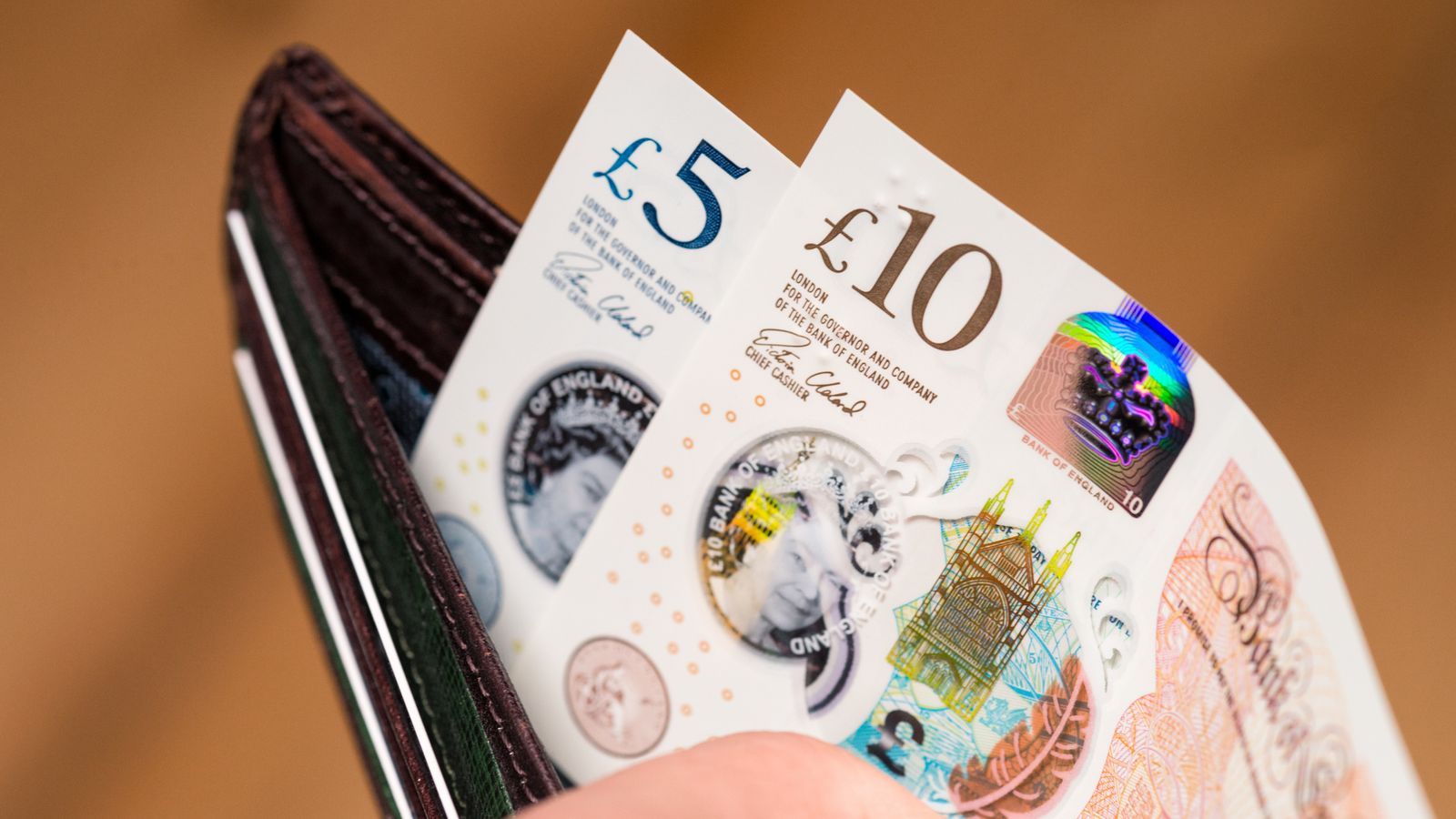Inflation falls to 2.3% in April – to lowest in nearly three years

The rate of price rises has dropped to 2.3% in April – the lowest in nearly three years and closer to the Bank of England’s target, according to official data.
Inflation is at a low not seen since July 2021, the Office for National Statistics (ONS) said.
Money latest: Do Sunak and Hunt deserve any credit at all for bringing down inflation?
It’s a sharp drop from a month earlier, in the year up to March, the figure was 3.2%. Prices are still rising just at a slower pace than before.
But it’s higher than economists and the Bank of England had forecast. Economists polled by Reuters and the Bank were expecting 2.1%.
It’s now closer to the 2% target set by the Bank of England and central banks across the world and may encourage the rate-setters to lower interest rates and make borrowing cheaper as a result.
What it means for interest rates
The higher-than-expected inflation number could discourage a rate cut next month or in August as could a key figure for the Bank – core inflation.
Core inflation, which excludes energy and food prices – liable to sharp rises and falls, stood at 3.9%, higher than the 3.6% forecast but still a fall from 4.2% a month ago.
A goal of 2% is set by central banks, whose job it is to ensure inflation sticks at that level, as it’s judged high enough so consumers avoid putting off purchases for fear of goods becoming cheaper and low enough that there’s price certainty.
The market is now expecting rates will be held at the next rate-setting Monetary Policy Committee meeting in June and cut at the next get together in August.
Why price rises have slowed
A cut to Ofgem’s energy price cap and the associated cheaper bills are a leading driver of inflation rate falls.
Reduced food price inflation – now at 2.9%, down from a high of 19.2% last year – and the absence of higher tobacco levies in the budget have also helped.
Acting to keep rises high is the increased cost of fuel after tensions between Israel and Iran brought oil prices to the highest in months.
The political reaction
“We rightly protected millions of jobs during COVID-19 and paid half of people’s energy bills after Putin’s invasion of Ukraine sent bills skyrocketing – but it wouldn’t be fair to leave future generations to pick up the tab,” Chancellor Jeremy Hunt said.
“That’s why we must stick to the plan to get debt falling. The economy is turning a corner, with strong growth this quarter and inflation close to target, allowing us to cut taxes for the average worker by £900 a year.”
Prime Minister Rishi Sunak said fall in inflation marked “a major moment for the economy, with inflation back to normal”.
He said: “This is proof that the plan is working and that the difficult decisions we have taken are paying off.
“Brighter days are ahead, but only if we stick to the plan to improve economic security and opportunity for everyone.”
But TUC general secretary Paul Nowak said the cost of living crisis was “not over – no matter how much ministers pretend it is”.
“Prices are still going up,” he said.
“Food and energy bills are much higher than a couple of years ago. And many are being hit by soaring mortgage repayments.
“While it’s good the inflation rate is lower, millions up and down the country are still having to cut back on everyday essentials”.
Related
Why investing in women is a vital next step for…
Get Nadine White's Race Report newsletter for a fresh perspective on the week's newsGet our free newsletter from The Independent's Race CorrespondentGet our fre
Business secretary signals major shift on electric car policy to…
In a determined effort to retain Nissan’s manufacturing presence in Britain, Business Secretary Jonathan Reynolds has vowed to implement “substantial c
Joint Statement: Business Secretary and Fujitsu Services Ltd
Business and Trade Secretary Jonathan Reynolds today (Friday 7 March) met chiefs for Fujitsu in Tokyo to begin talks over the cost of redress for victims of th
UK foreign secretary backs multilateral defence funding for Europe
UK foreign secretary David Lammy has said that a new multilateral fund will be needed to secure Europe’s defence as he confirmed that Britain is “open to”














